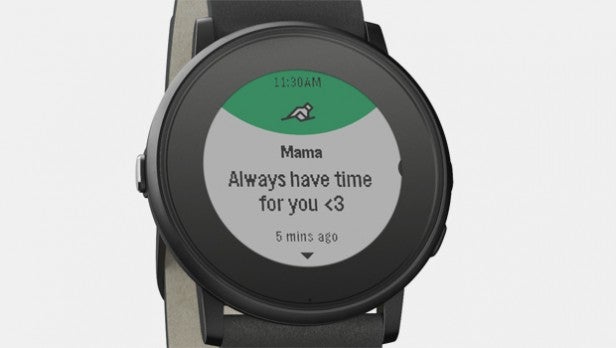Week in Tech: Smartwatches are more about the watch than the smarts

OPINION: Our resident US correspondent Chris Smith analyses smartwatch-makers’ latest attempt to find an identity, while the toppling of the FIFA franchise is also on the agenda. Chris also looks at how Ofcom may be damaging Britain’s 4G standing and how the most important feature on new Nexus phones will be the price.
Turns out regular old watches weren’t that bad after all…
For their most recent smartwatch releases, manufacturers have been keen to point out just how watch-like the devices are. Buzzwords like ‘traditional,’ ‘classic,’ and ‘watch-first’ have long replaced all that spin about ‘revolutionising’ everything that ever touched a wrist.
It’s all a far cry from those early calls to overthrow the classic timepiece, which, according to these companies had done little but burden our bodies with mere time-telling abilities for well over a century.
Apple’s partnership with Hermes and the new Huawei Watch, reflect this newfound realisation that people who buy expensive watches generally do so because they enjoy wearing them, not because of their mega-smart functionality.
The latest to fall back into line is Pebble, which launched the Pebble Time Round this week. Apparently it’s the ‘first smartwatch that looks like a beautiful, classic wristwatch’ and it sure is elegant.
But at what cost?
Related: Pebble Time Round: What to expect from its first round watch
Pebble has previously talked about building a waterproof device with great battery life as core principles for its smartwatches. The Pebble Time offered a great step forward in that respect with an always-on colour display, 7-days of battery life and water resistance to 30m. It addressed three of the biggest complaints about the new breed.
Yet
And what have those sacrifices been made for? To obtain the empty ‘worlds thinnest and lightest’ tag? To incorporate a round display surrounded by the ‘world’s thickest bezel’?
To use a football analogy, smartwatch makers – not just Pebble – seem to have a touch of Brendan Rodgers’ Liverpool about them. Constantly starting over with fresh ideas, struggling to find any semblance of identity, and playing with multiple formations in the vain hope that something, anything, might catch on.
Smartwatch manufacturers have now stopped trying to ‘change’ the game and simply started to play it. TAG, you’re it!
Pro Evo’s renaissance is great news for FIFA fans…
I’ve been a FIFA guy for over 20-years. Man, isn’t that enough to make a guy feel old?
Since the first time I heard “EA Sports, it’s in the Game,” and learned how to score 95 times from the exact same spot against Qatar in the original, it’s been my footy game of choice.
Even when everyone started playing ISS/Pro Evo I resisted. The gameplay may have been better, but I couldn’t get past the blag player names.
SEE ALSO: PES 2016 review
However has anything about FIFA (or any of the EA Sports franchises) really changed that much in over a decade? This year’s edition is even less upgrade worthy than the iPhone 6S!
So, while I probably won’t be buying PES 2016 either, hopefully this dethroning will be inspiration for EA to change things up a bit and introduce some new ideas before it goes the way of the NBA Live vs NBA 2K rivalry, where the firm no longer gets a look in.
UK falling behind on 4G, so how does Ofcom raising license fees help?
Some sobering news for British mobile users this week; the UK’s 4G coverage ranks 53rd out of 68 countries and is about on par with India and Brazil. Blimey. Surely what we need is a new round of huge investment from the networks to bring us into the upper echelons of global mobile communication speeds right?
Well apparently, Ofcom – which is supposed to be in charge of overseeing the speedy proliferation of these services, but has done little but hold things up since day one – thinks differently.
The communications regular is tripling mobile license fees for the major networks, with combined costs rising to £199.6 million a year from £64m!
So, are the networks just going to let these millions come out of their bottom line? Charrrright! And monkeys might fly outta my butt! What we’ll probably see is the roll out of 4G services around the UK slow further as funds that may have been allocated for this purpose disappear to make up the shortfall.
Nice going, Ofcom.
![]()
The price has to be right on the new Nexus phones
The Android landscape has changed considerably since Nexus phones were last considered a big deal. There was a time when these devices offered the best Android experience, the fastest path to Android updates and the best value for money. Not anymore.
Since the LG Nexus 5, Motorola has redefined all of those principles, while upstarts like OnePlus have risen to offer more options for those seeking a better deal.
So forgive me if I’m not champing at the bit to see the new LG and Huawei Nexus phones this coming week.
Related: Nexus 5X vs Nexus 5: What big changes can we expect?
If these phones are to succeed, then the flagship-style pricing of the Nexus 6 must be utterly dropped. They must be an appealing SIM-free option like the Nexus 4.
So come on Google, do everyone a favour, give us a reason to care about the Nexus range again.


